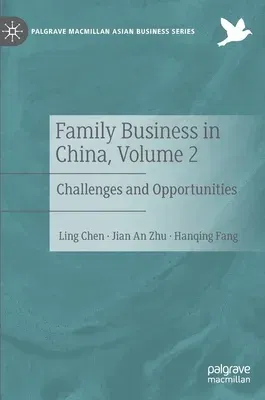Ling Chen
(Author)Family Business in China, Volume 2: Challenges and Opportunities (2021)Hardcover - 2021, 5 September 2021

Qty
1
Turbo
Ships in 2 - 3 days
In Stock
Free Delivery
Cash on Delivery
15 Days
Free Returns
Secure Checkout

Part of Series
Palgrave MacMillan Asian Business
Print Length
177 pages
Language
English
Publisher
Palgrave MacMillan
Date Published
5 Sep 2021
ISBN-10
3030514013
ISBN-13
9783030514013
Description
Product Details
Authors:
Book Edition:
2021
Book Format:
Hardcover
Country of Origin:
NL
Date Published:
5 September 2021
Dimensions:
21.01 x
14.81 x
1.27 cm
ISBN-10:
3030514013
ISBN-13:
9783030514013
Language:
English
Location:
Cham
Pages:
177
Publisher:
Weight:
381.02 gm